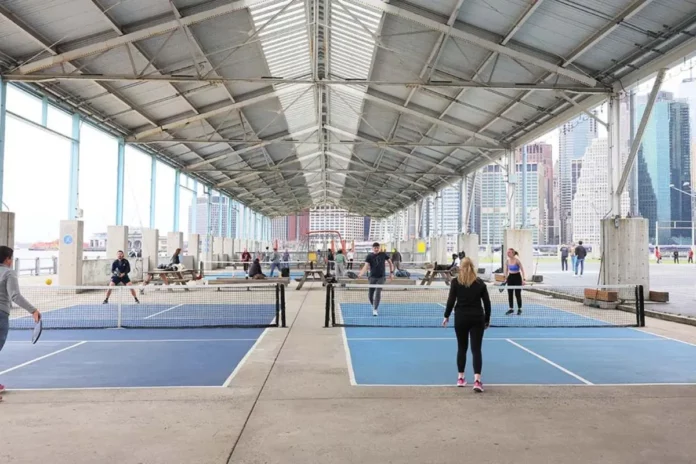Infrastructure Tax for Pickleball Courts: The town of Gilbert, Arizona, is facing legal action over a new 2% infrastructure tax, which includes funding for constructing and maintaining pickleball courts. The Goldwater Institute filed a lawsuit against the town, calling the tax illegal under the Arizona Constitution.
Tax Changes and Resident Backlash
Starting January 2025, Gilbert increased taxes on hotels, bars, and restaurants—some for the first time in 25 years. A new 2% tax on infrastructure, dubbed the “pickleball tax,” was also introduced. This tax applies to residents, tourists, and online vendors, even those unrelated to pickleball.
Protests erupted as residents criticized the new tax, claiming the cost of essential services like water is already high.
Goldwater Institute Challenges Legality
The Goldwater Institute argues that the tax violates the Arizona Constitution, which prohibits new taxes or increases in taxes on services like construction and lodging.
“Even as Arizonans struggle with the rising cost of living, government officials in Gilbert are raising taxes on their citizens to fund everything from pickleball courts to splash pads.” – (Goldwater Institute)
The organization also expressed concerns that the tax impacts critical projects like building new pickleball courts, potentially diverting funds from essential community needs.
Community Concerns and Future Implications
Many residents have voiced opposition, citing financial strain from existing taxes. With the case now in court, the outcome could set a precedent for municipal taxation policies in Arizona.
This lawsuit raises questions about balancing community development with financial fairness, leaving Gilbert’s future tax structure and infrastructure plans uncertain.
News in Brief: Infrastructure Tax for Pickleball Courts
Gilbert, Arizona, faces a lawsuit from the Goldwater Institute over a new 2% “pickleball tax” for infrastructure, including pickleball courts. Critics claim the tax, effective January 2025, violates the Arizona Constitution and burdens residents amid high living costs.
Protests highlight concerns about financial strain and priorities, with the court’s decision potentially shaping municipal taxation policies statewide.
ALSO READ: Delta City Confirms Pickleball Courts Will Remain Amid Noise Complaints

